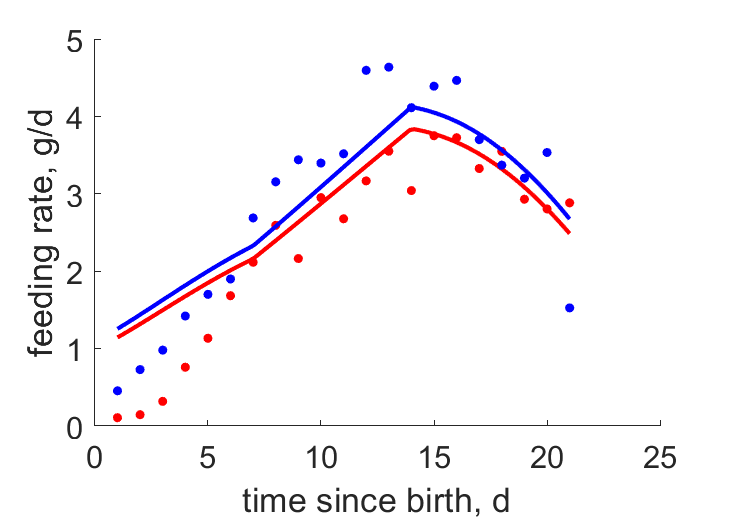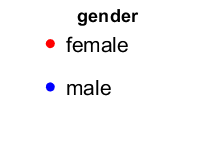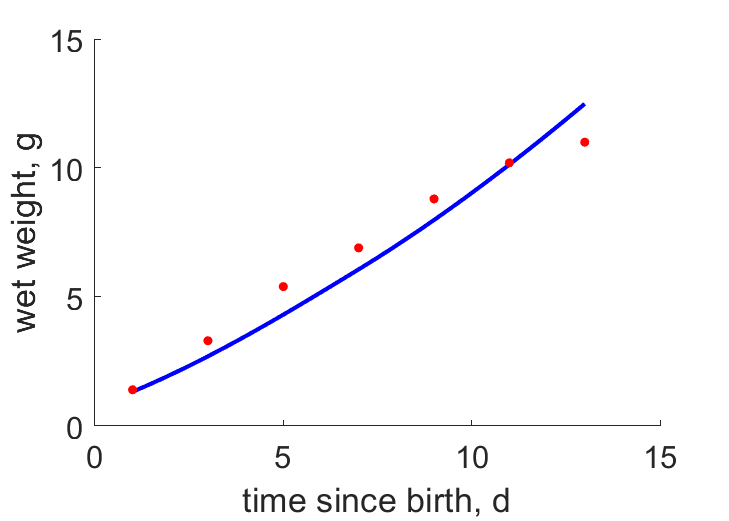Predictions & Data for this entry
| Model: std | climate: Dfa, Dfb, Dfc | migrate: | phylum: |
| COMPLETE = 2.8 | ecozone: THn | food: biCi | class: |
| MRE = 0.052 | habitat: 0iTf | gender: Dg | order: |
| SMSE = 0.010 | embryo: Tnwf | reprod: O | family: |
Zero-variate data
| Data | Observed | Predicted | (RE) | Unit | Description | Reference |
|---|---|---|---|---|---|---|
| ab | 12.5 | 12.09 | (0.03292) | d | age at birth | Smit1991 |
| tx | 14 | 14.01 | (0.0006299) | d | time since birth at fledging | Wiki |
| tp | 42 | 41.34 | (0.01578) | d | time since birth at puberty | guess |
| tR | 365 | 365 | ( 0) | d | time since birth at 1st brood | Smit1991 |
| am | 4526 | 4569 | (0.009505) | d | life span | Smit1991 |
| Wwb | 0.729 | 0.7357 | (0.009161) | g | wet weight at birth | Smit1991 |
| Wwi | 12.4 | 12.34 | (0.004946) | g | ultimate wet weight for females | avibase |
| Wwim | 13.5 | 14.01 | (0.03802) | g | ultimate wet weight for males | avibase |
| Ri | 0.0274 | 0.02705 | (0.01265) | #/d | maximum reprod rate | Smit1991 |
Uni- and bivariate data
| Data | Figure | Independent variable | Dependent variable | (RE) | Reference |
|---|---|---|---|---|---|
| tJX |   | time since birth | feeding rate | (0.1686) | Smit1991 |
| tW |  | time since birth | wet weight | (0.1059) | Smit1991 |
Pseudo-data at Tref = 20°C
| Data | Generalised animal | Poecile atricapillus | Unit | Description |
|---|---|---|---|---|
| v | 0.02 | 0.02536 | cm/d | energy conductance |
| p_M | 18 | 971.1 | J/d.cm^3 | vol-spec som maint |
| k_J | 0.002 | 0.03952 | 1/d | maturity maint rate coefficient |
| k | 0.3 | 0.2983 | - | maintenance ratio |
| kap | 0.8 | 0.9346 | - | allocation fraction to soma |
| kap_G | 0.8 | 0.7991 | - | growth efficiency |
| kap_R | 0.95 | 0.95 | - | reproduction efficiency |
Discussion
- Males are assumed to differ from females by {p_Am} only
- mod_2: v is reduced and food availability is taken variable in tW data
- mod_3: Pseudo-data point k is used, rather than k_J; Data set tp and parameter t_R are added, the latter replacing clutch interval t_N. Postnatal T is based on PrinPres1991, see get_T_Aves. See further the revision page, theme puberty
Facts
- This species is well known for its capacity to lower its body temperature during cold winter nights (Ref: Wiki)
Bibliography